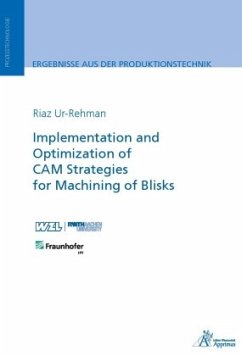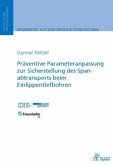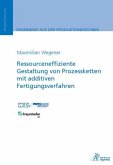Blisks with smaller diameter, reduced blade pitch; and airfoils that are longer, more curved, twisted and bowed are essential for developing aero engines with lower specific fuel consumption. All this complexity of design is a challenge for manufacturers and at the end effect the task to be handled by an expert manufacturing process planner. The current practice in process planning will never cope with the increasing complexity in blisk designs and higher volumes for their production. The requirement to develop innovative approaches for manufacturing planning of blisks has been realized; accordingly, in the thesis the methods that handle this complexity in design and provide meaningful data and information to develop effective process plans are discussed and demonstrated.
Bitte wählen Sie Ihr Anliegen aus.
Rechnungen
Retourenschein anfordern
Bestellstatus
Storno








